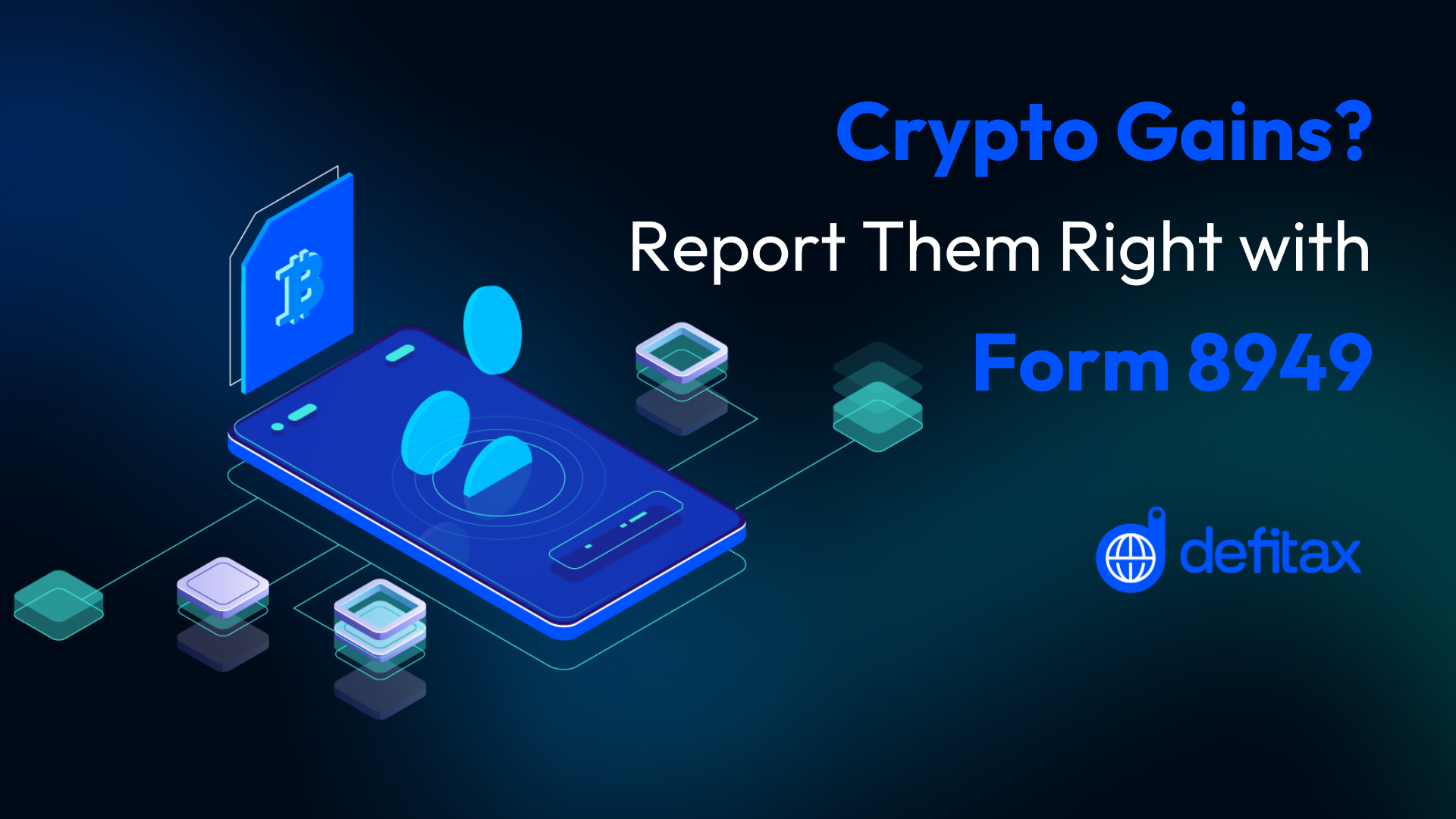
As the IRS cracks down on digital assets in 2025, accurate tax reporting has never been more critical. One form, in particular, is at the center of this new era of crypto compliance: IRS Form 8949.
Whether you’re flipping NFTs, trading tokens, or managing a crypto portfolio, filling out Form 8949 correctly can save you from audits and penalties. This guide will walk you through how the form works, what to report, and how platforms like DeFi Tax can simplify the entire process.
IRS Form 8949 is used to report sales and exchanges of capital assets, including stocks, real estate, and now cryptocurrency transactions. It provides a detailed breakdown of each taxable event, ensuring that capital gains and losses are accurately calculated and reported.
Crypto traders are required to report all capital gains and losses. Without Form 8949, these transactions can’t be accurately reflected on Schedule D, which may raise red flags with the IRS. Missing or misreporting data can trigger audits, penalties, or worse — tax bills you didn’t expect.
By filing this form correctly, you’ll ensure your records are complete, transparent, and in line with IRS expectations.
To correctly report your crypto transactions, Form 8949 requires:

Filing might sound overwhelming — especially if you trade frequently — but breaking it down helps:
The IRS allows different methods to calculate capital gains and losses on crypto transactions. Choosing the right one can impact your tax liability:
✅ Choosing the right cost-basis method is essential for tax efficiency and audit readiness.
✅ Missing or incorrect entries can lead to IRS audits and penalties.
When filing Form 8949 for crypto transactions, several common mistakes can lead to IRS scrutiny, misreported gains, and potential penalties. One major issue is failing to report all transactions, as many crypto exchanges do not provide complete tax records, causing investors to unintentionally omit trades. Additionally, using the incorrect cost basis method—whether FIFO, LIFO, HIFO, or Specific ID—can result in miscalculations that affect taxable gains and losses. Another frequent mistake is mixing short-term and long-term gains, which can lead to errors on Schedule D and impact the applicable tax rate. Lastly, relying on incomplete exchange data can create inconsistencies in reporting, making it essential to use a crypto tax solution like DeFi Tax to ensure accurate, audit-ready tax filings.
Manually organizing your crypto transactions for Form 8949 can be time-consuming and error-prone. DeFi Tax simplifies the process with automated tracking and reporting tools:
With DeFi Tax, you can eliminate the stress of crypto tax reporting and ensure your Form 8949 is completed accurately and on time.
Crypto tax reporting doesn’t have to be complicated. By using DeFi Tax, you can automate Form 8949 preparation, minimize errors, and stay compliant with IRS regulations.
Make tax season easier—get started with DeFi Tax today!